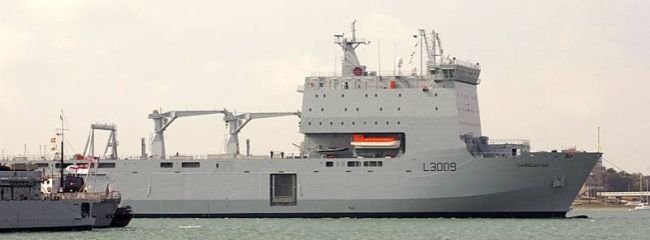WASHINGTON, Jan. 6, 2012 — The new defense strategy guidance President Barack Obama announced yesterday underscores the growing strategic importance of Asia and the Pacific, the commander of U.S. Pacific Command said.
Navy Adm. Robert F. Willard told participants at the Hawaii Military Partnership Conference yesterday the strategy recognizes challenges as well as opportunities in a region where change is the only constant.
“There is always a lot occurring in the Asia-Pacific region, and it is never static,” Willard told the forum. He noted that during his 39 years of military service, much of it served in the Pacific and Indian Ocean regions, “there has never been what I would call stability.”
The United States has tailored its posture in the region over the years, while the region itself has changed in “dynamic, dynamic ways,” economically as well as politically, the admiral explained.
The new strategy guidance reflects those changes, Willard said, providing a strategic vision intended to guide the military through 2020 with its heavy focus on Asia and the Pacific.
It recognizes that U.S. economic and security interests are inextricably linked to developments in the vast, 39-nation region, he told the group.
“Accordingly, while the U.S. military will continue to contribute to security globally, we will of necessity rebalance toward the Asia-Pacific region,” he said, quoting the guidance directly.
U.S. relationships with Asian allies and key partners will remain critical to the region’s future stability and growth, Willard said. So while strengthening existing alliances that have provided a vital foundation for regional security, he said, the United States also will strive to forge closer ties with emerging regional partners.
Willard recognized India’s as well as China’s emergence as “two Asian giants driving economic developments in the region.”
He cited investments toward a long-term strategic partnership with India so it can serve as “a regional economic anchor” and enhance security in the broader Indian Ocean area.
Noting China’s rise as a regional power, Willard underscored both China’s and the United States’ interest in building a cooperative bilateral relationship that promotes regional peace and stability. He shared concerns expressed in the strategy about China’s lack of transparency about its strategic intensions, emphasizing that greater clarity will help avoid friction in the region.
Meanwhile, Willard noted the emphasis in the new guidance in working with allies and other regional states to maintain peace on the Korean peninsula, particularly in light of North Korea’s new leadership.
U.S. Pacific Command and U.S. Forces Korea are watching that situation closely to determine if the succession will go smoothly, Willard said, and to assess any changes within North Korea or its relations with its allies, including China and Russia.
Looking to the future, Willard said, the new strategic guidance recognizes that a balance of military capability and presence will be critical to maintaining peace, stability, the free flow of commerce and U.S. influence throughout the region.
As the new strategy is implemented, Willard commended the 330,000 members of Pacom soldiers, sailors, airmen, Marines, Coast Guardsmen, civilian employees and contractors standing watch in Asia and the Pacific.
“They are proud, they are very accomplished and their singular goal is to maintain the security, if not the stability, of the Asia-Pacific region,” he said.
“We will continue to maintain the watch and deal with the ever-evolving Asia-Pacific theater as it becomes central to the security focus of our country for the first time, in my experience,” he said.
Source:
U.S. Department of Defense
Office of the Assistant Secretary of Defense (Public Affairs)

 von
von 
